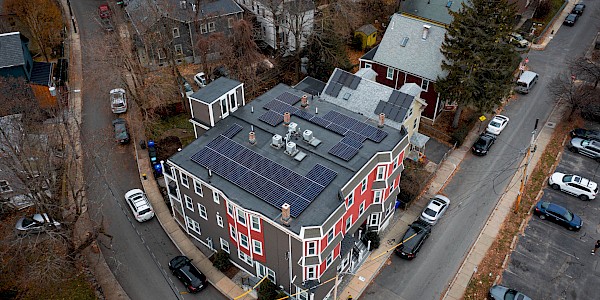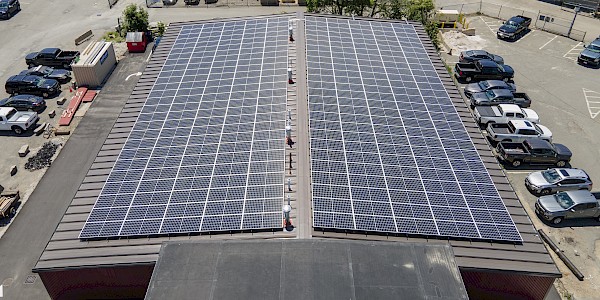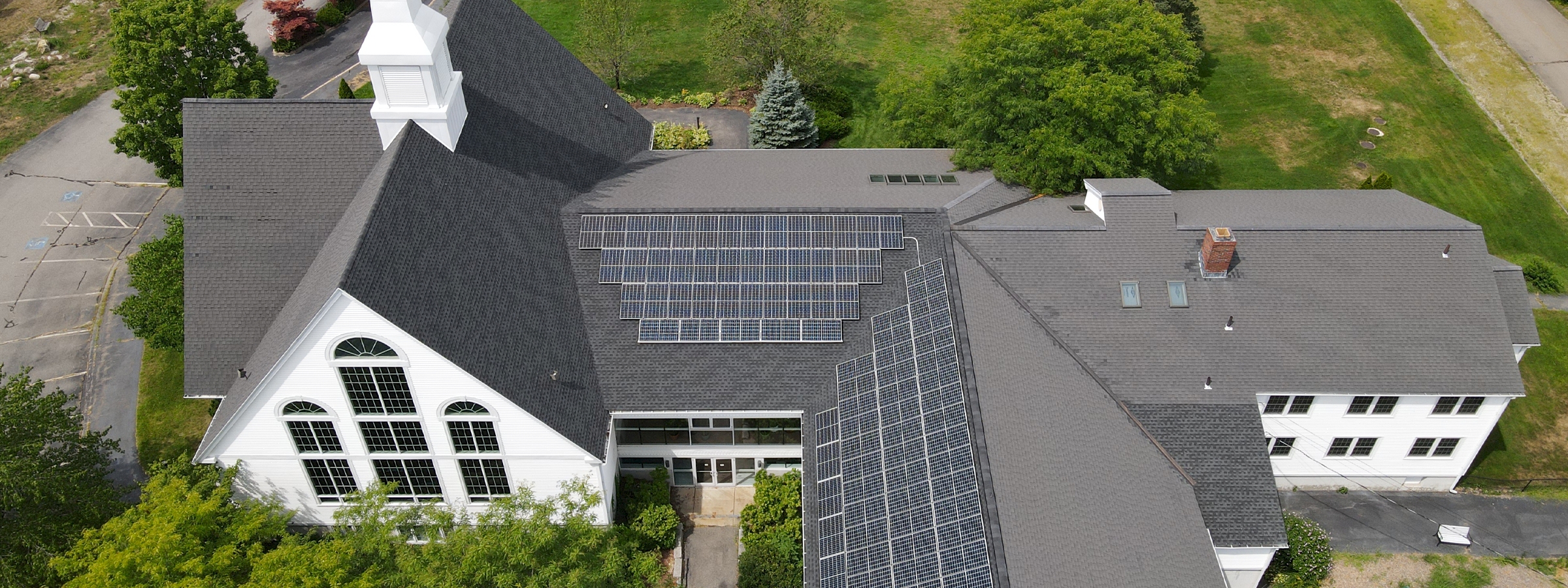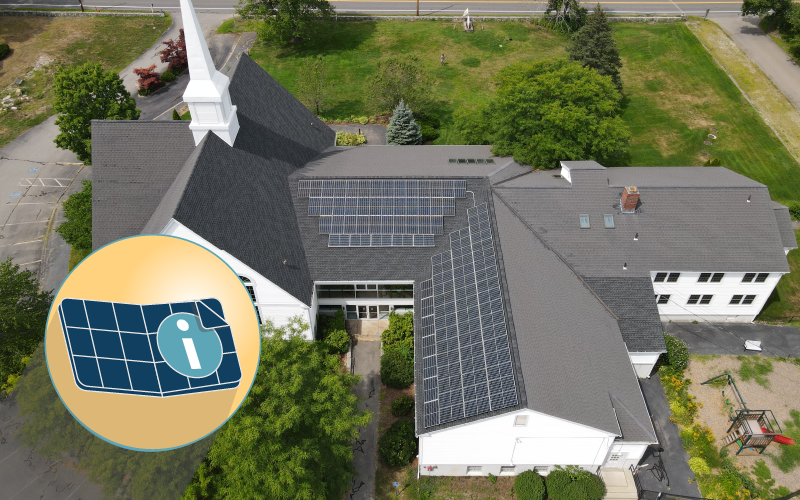What Non-Profits Have to Gain By Going Solar
Feb. 24, 2021
From faith-based organizations to public schools and community programs, non-profits do endless good, but unfortunately, they don’t usually have endless funding. This makes it challenging to keep up with the day-to-day costs of running a business, and puts cost-saving investments, like solar panels, out of the question for many non-profit organizations.
But the energy savings that come with going solar can be incredibly impactful for non-profits in the long run, and as the cost of solar installation goes down and more incentive options become available, solar panels are becoming a real possibility for many non-profit organizations here in Massachusetts.
The Benefits of Solar Energy for Non-Profits
If you’re like most non-profits, getting good value for your money is important to your organization, and going solar is a great way to do so. Here’s what your non-profit stands to gain from installing solar:
Lower Operational Costs = Fundraising Gains
Electricity is a major expense for any business, and when you’re running a non-profit, any money that’s going toward operations is being taken away from your mission. With solar panels in place, you can decrease or even eliminate your electricity costs, making it more affordable to run your organization for decades to come and allowing you to put that money to better use, like fundraising and program costs.
Positive Community Attention
From supporting the local economy to creating more jobs for Massachusetts residents, going solar greatly benefits your local community. Because of the impact renewable energy can have at the local level, going solar can bring positive community attention to your organization and encourage donors to contribute to your cause.
Future-Proofing
The need for electricity will never go away, but when you rely entirely on the electricity grid, it’s bound to get more expensive. By going solar, you can protect your organization against the ever-rising cost of grid-generated electricity and allocate more dollars toward running your programs and furthering your mission. Additionally, you’ll be reducing your reliance on fossil fuels, which can be both beneficial to your ethos as well as for the environment.
Solar Incentives for Non-Profits in Massachusetts
As non-profits don’t have tax liability and are tax-exempt, non-profit organizations are ineligible for the Federal Investment Tax Credit (ITC), also known as the solar tax credit, which is one of the most lucrative incentives for installing solar energy for homes and businesses. While it’s unfortunate that the ITC does not account for non-profits, there are many other incentives that can help your organization save significantly with solar.
Earn Monthly SMART Incentive Payments
The Solar Massachusetts Renewable Target (SMART) Program, is one of the best incentives available to non-profit organizations in Massachusetts. Through the program, qualifying solar systems that are connected to a participating utility (Eversource, National Grid, and Unitil) will receive monthly payments based on the amount of energy their solar panels produce and an incentive rate at the time they enroll. This is a declining incentive so the sooner you go solar, the better you stand to save!
When you enroll in the SMART program, you can think of your solar panels as a virtual tenant that pays you rent in the form of monthly incentive payments—except, unlike a human tenant, your solar panels will never complain or be late on their payments. And now, your organization has an additional source of income that can go directly toward your cause or boost your fundraising efforts.
Offset Your Electricity Bills With Net Metering
Net metering allows you to benefit from any extra energy your solar panels produce that you don’t use by sending it back to the grid in exchange for a credit from your utility. Then, when your solar panels are not producing enough energy to cover what you’re using, you can use the credits you’ve accumulated to pay for grid-supplied electricity. With a custom-designed solar energy system that aims to offset up to 100% of your energy usage, you should never have to worry about buying electricity if you need to keep the lights on at night or during a cloudy day.
Additional Solar Financing Options for Non-Profits
If directly owning your solar energy system isn’t a financially viable option either due to the upfront costs or not being able to receive tax incentives to help lower the cost of the system, many non-profits can choose a PPA or a solar lease. What’s the difference?
Power Purchase Agreement (PPA)
A Power Purchase Agreement (PPA) is a contract between the solar PV system owner and the non-profit owner, which is the consumer of the electricity. This allows for the non -profit to host the solar energy system onsite but without any upfront costs. In exchange, the non-profit would then get a locked in, reduced rate for up to 25 years. So, the non-profit organization can put $0 down and still benefit from renewable energy savings but the PPA provider owns the solar PV system and can receive the federal and state incentives but is also responsible for the warranty and maintenance.
Solar Lease for Non-Profits
Another viable option for non-profits looking to go solar is having an operating solar lease where the non-profit gets the benefits of the solar panel system’s energy production, such as a lower utility bill, but avoids the upfront costs of owning a system outright. The solar lease provider owns the solar panel system and receives all the federal tax credits and MACRS accelerated appreciation. Rather than leasing the solar PV system for the lifespan of the system, there is an opportunity for the non-profit to buy out the system at 15% or fair market value at the 7th year.
Looking for Solar Energy Companies in Mass?
There are a lot of companies that install solar energy for non-profit and commercial buildings in MA, but few can provide the high level of customer service and expertise offered by Boston Solar.
We’re a 100% locally owned and operated solar energy company in Boston that’s completed over 4,500 solar panel installations. Much like your non-profit, we’re working toward a goal that’s bigger than we are, and we understand the responsibility that comes with having a mission. From answering questions like “how much is the cost of solar energy?” to helping you qualify for solar incentives, our team is here to make your non-profit’s transition to solar as easy as possible, so that your team can stay focused on furthering your cause.
Is your non-profit ready to go solar? Call 617-858-1645 or contact us here to schedule a free consultation.




